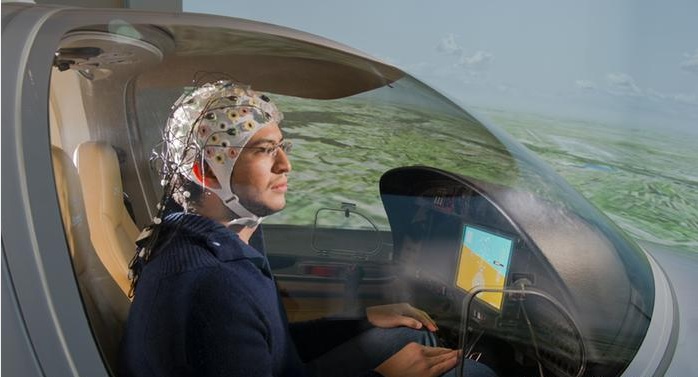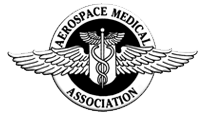 PILOT BEHAVIOR – THE MIND OF THE PILOT
PILOT BEHAVIOR – THE MIND OF THE PILOT
The FAA has increasingly allowed psychotropic drugs and has given Aviation Medical Examiners the authority to approve low-level mental health cases. Pilots with minor mental issues will now stand a better chance for fast issuance of their FAA Medical certification. While these “Fast-Track” protocols are helpful, the new policies only apply to rudimentary situations. The FAA has not really changed their decision criteria or mental health testing. If the FAA thought someone was unfit before, they probably still do. This is especially true for pilots who only wish they could answer “no” on their MedxPress application. As long as there are horrific mental health failures and plane crashes, there will always be speed bumps on the medical certification runway. Pilot Medical Solutions offers the following recommendations to smooth out your mental health runway and maintain FAA medical certification.
IF YOU WANT TO KEEP FLYING, KEEP PHYSICALLY AND MENTALLY FIT
You don’t have to be a rocket pilot to know that physical and mental exercise keeps you sharp. Those who establish good physical and mental health fitness regimens enjoy the highest quality life and can often avoid, reduce or eliminate mental burdens. Fitness can reduce the need for medical treatment and it can help us enjoy relationships.
KEEP YOUR RELATIONSHIPS FIT TOO FLY TOO
Many pilots have been grounded because they failed to take the high-road in a conversation. We have seen tenured captains ruin an otherwise successful career because of something as simple as an argument with a flight attendant. As aviation industry leaders our judgement and behavior is on full display. The new Fast-Track rules require Aviation Medical Examiners to utilize complex mental health protocols to alert the FAA of behavioral health risks. The FAA has admonished AME’s to defer cases when they are in doubt and it is certainly easier for the AME to defer a pilot who is not acting like a pilot. If a pilot is involved in any type of incident that appears medically related, the FAA will usually request additional medical information. If the FAA receives information from another source that a pilot may have a mental health condition, they can direct the pilot to provide specific documents, and they may require the pilot to obtain comprehensive psychiatric and psychological evaluations.
ESTABLISH YOUR OWN FLIGHT FITNESS APPRAISAL & VET MEDICAL PRACTITIONERS CAREFULLY
Sigmund Freud, the founder of psychoanalysis and purveyor of mental pathologies said: “The wish to be able to fly is to be understood as nothing else than a longing to be capable of sexual performance.” Freud died by suicide on September 23, 1939. You can’t always count on the mental health profession to get everything right; this does not mean that we as pilots should be the sole judge of our capability either. Objectivity necessitates multiple opinions. Neither individuals nor the government should rule over a consensus of independent perspectives. As pilots we should seek to augment our perspective with input from others.
While pilots generally have above average IQ’s, everyone has cognitive strengths and weaknesses. FAA mental evaluations are sensitive and often a weakness is identified which is so subtle that the person evaluated is unaware of it.
14 CFR § 61.53 – Prohibits aviation operations during a medical deficiency. For me, this means my preflight should include a fitness checklist, which includes aeromedical elements and confirms that I am fit to fly. Self-assessment can be challenging too. Scientist Rene Descartes said: “from time to time I have found that the senses deceive, and it is prudent never to trust completely those who have deceived us even once.”
At some point we are all susceptible to grave human errors. There are many good reasons for pilots to use instruments and train to accept the consensus of gauges instead of relying upon the seat of our pants sensation. Most pilots recall being taught to fly the six-pack of gauges to assure they were not deceived by their senses or any one gauge in particular. There’s also six “gauges” for flight fitness. It is a familiar acronym for most pilots. The IMSAFE checklist helps pilots establish flight readiness.
Illness: Do I have an illness or any symptoms of an illness that could affect my ability to fly?
Medication: Have I been taking prescription or over-the-counter drugs that could affect my flight ability or performance?
Stress: Am I under pressure or stress that could impact my flight ability or performance?
Alcohol: Have I been drinking within the last 8-24 hours? Am I currently under the influence or experiencing the effects of alcohol?
Fatigue: Am I tired? Have I had enough sleep and am I adequately rested?
Eating: Am I adequately nourished and hydrated? Is my diet generally healthy?
If used honestly before each flight the IMSAFE checklist is a confidential risk appraisal. Flight departments that implement aviation-specific flight fitness awareness programs can further enhance safety, reduce conflicts and curb costs.
As pilots we should seek to augment our perspective with input from others. Enlist the opinion of those you respect. When I fly, I give everyone in the airplane the authority to point out other airplanes. I might have already seen an aircraft, but I don’t dare assume that what they see is not important. We should do the same thing with our mental health. I solicit observations from my friends and family. While family can be our harshest critics, their unfettered access to us uniquely qualifies their constructive input.
Unfortunately for the pilot even the slightest brainpower issue can be large enough to present an obstacle for FAA medical certification. Sometimes the pilot has no significant medical issues but for reasons not related to mental fitness they simply do not do well enough to pass mental health testing required by the FAA.
While there are ways to strengthen cognitive function and permanent medical certification denial is not common, employment actions to address personnel conflicts can be costly for both pilots and employers. Evaluations can cost thousands of dollars plus the cost of grounding an experienced pilot.
TRAINING FOR MENTAL CHALLENGES
Psychiatric and psychological evaluations aren’t generally something anyone plans for. Many pilots who are notified that the FAA requires a mental health evaluation might not consider training for it. Some might imagine that cognitive training would be cheating. It is not. I am not suggesting anyone should memorize the correct answers or deprive the FAA of honest information that might otherwise ground the pilot. But what about the speed, strength and utility of a pilots mind? Don’t we want those to be as strong as possible? What about perception, our senses? Should we not train to improve our perceptions and imperceptions
PREVIOUSLY UNREPORTED CONDITIONS
“I’m not what I think I am. I’m not what you think I am. I’m what I think, the FAA thinks I am.”
Pilots are required to all report health professional visits, and their lifetime medical history. Concealing medical conditions can amplify the problem, both with the FAA and in our minds. Many pilots report the stress of holding things in only to find out their situation is acceptable to the FAA.
There is a right way and a wrong way to tell the FAA your darkest secret. If you failed to report something, don’t just fall on your sword. Many pilots wish that they had researched the FAA’s requirements before spilling their proverbial tea to the FAA. Others might plan to take their diagnosis to the grave but then they are ratted out by their ex, a co-worker or a medical provider.
DON’T SUBMIT RECORDS TO THE FAA OR AN AME WITHOUT GUIDANCE
Those who self-manage their medical certification process risk significant delay, and in some cases, permanent grounding. Having oversight by an experienced medical advocate assures that your medical records are eloquently detailed and in complete compliance with both written and unwritten FAA requirements. This is because the presence or absence of one word in your records can change the outcome of FAA medical certification. It is more critical than ever, that pilots avail themselves of readily available guidance early.
BOB HOOVER – AN EXEMPLARY ILLUSTRATION
One of the world’s greatest pilots, Bob Hoover, was also famous for his run-in with the FAA. Years later, Bob decided, on his own, that it was time to quit flying. Bob was asked how he knew it was time to quit. He said that he had standards for every flight maneuver that he performed. These were altitude and attitude standards that he had for his maneuvers and performance. He vowed to himself, that when the day came that he could no longer meet those standards, he would ground himself. That day came, he tried to do the maneuver twice, but failed to meet the standard that he had set for himself years before, and so he landed and walked away!
WHAT ARE YOUR FLIGHT FITNESS STANDARDS?
While most pilots would not dare to put the wrong oil in an aircraft, they often take little note of what they eat or drink. Pilots are an elite group. We are generally people who consider all potential safety threats and make better than average decisions. Deciding when it is safe to fly is one of the many decisions that we make. Another choice is when and where to address mental problems. Make no mistake; both of these are critical decisions.
The Pilots Mind | Psychiatric Fitness | Pilot Mental Issues | FAA Statistics | SSRI’s & Pilots



